Chapter 1 - A Life Without Meaning
The English language is not my native language because I am French and I do not speak it well enough to write a story in this language. I used the ai to help me write and translate this story which was originally written in French______________________________________________ ____________________________
At 41, Lucy was living under the crushing weight of loneliness since her two children had left home to fly on their own. Her 21-year-old son and her 19-year-old daughter had left, leaving an immense void in her life. This absence weighed heavily on her, and each day plunged her deeper into a profound depression. The laughter, the sounds of their comings and goings, were now only distant echoes in the now-silent house.
As for her marriage, it had become nothing but a facade. For over five years, she and her husband had lived as strangers under the same roof. He would leave every morning, and when he returned, often very late at night, he would be in a state of heavy intoxication. Conversations were nonexistent, gestures of affection long forgotten. Their intimacy had ceased long before they had decided to sleep in separate rooms, which had been the case for four years now.
Lucy was aware of her husband's double life. She knew he was cheating on her with his secretary and probably with other women as well. It was a betrayal she had chosen to ignore, as if closing her eyes could maintain a semblance of balance in her life. Deep down, she knew she should have left long ago, ending this charade. But back then, her children were still there, and she was afraid of breaking the fragile stability she had painstakingly built. So, she endured...
Professionally, Lucy was doing fairly well, despite the emotional storm shaking her personal life. Six years earlier, she had founded a small business dedicated to the artisanal crafting of nursing pillows and accessories for pregnant women. With her sewing skills, she also made soft toys and fabric toys for toddlers. Each item she sold bore the mark of her craftsmanship, and her website highlighted this artisanal production, which attracted a loyal clientele. She also sold her creations through popular platforms, increasing her visibility.
Sales, though modest, were steady and ensured a stable income, comfortable enough for her to be completely financially independent. This independence gave her invaluable freedom from her husband, whose good salary no longer interested her. In an economic context where many struggled to make ends meet, Lucy could not complain about her financial situation.
With her business well established, she had the luxury of organizing her work schedule as she pleased. Typically, she would wake up early, starting her day around 6 a.m. and working until noon. These early work hours left her afternoons free for herself, a luxury she particularly appreciated. However, despite this freedom, the loneliness continued to weigh on her, with hours often stretching out aimlessly once her workday was over.
While her work offered her some professional satisfaction, her social life, on the other hand, was desperately empty. Working from home, Lucy had few opportunities to forge connections. Without colleagues to interact with daily, and with her childhood friends long scattered into their own lives, she found herself isolated. The few human contacts she had were often limited to impersonal exchanges via email or online platforms to manage her business.
Lucy had devoted her entire life to her children, raising them with love and dedication. But once they had left the family nest to fly on their own, they took with them the deep meaning of her daily life. Their departure had left an immense void, an emotional chasm she struggled to fill.
Faced with this overwhelming loneliness, Lucy sometimes turned to alcohol, seeking to dull the pain of her isolation. A few glasses in the evening helped her forget, if only temporarily, the emptiness that reigned around her. But this escape, though comforting in the short term, only heightened her sense of depression once the effects wore off, plunging her further into a spiral of sadness and isolation.
One afternoon in early January, as Lucy took advantage of her free time to clean the house, she then settled on the couch to watch documentaries on YouTube. She stumbled upon a report, broadcast a few years earlier, in which a journalist temporarily adopted the lifestyle of obese women. For four weeks, the journalist followed their diet and daily routines in an attempt to understand their personal and psychological journeys.
To her great surprise, this report profoundly affected Lucy. Even though she weighed only 55 kg, a relatively light weight, she found herself feeling something unexpected as she watched these women, some extremely obese, expose their insecurities and struggles in front of the camera. While she understood their difficulties, she couldn't help but feel a certain sense of envy as she watched them. There was a strange fascination within her, a desire to experience what they were going through, to see herself in their skin.
It was a troubling revelation. For the first time, she realized that she had a form of fetishism related to weight gain. With each image of these oversized bodies, a mix of excitement and confusion welled up inside her. She suddenly felt wet between her legs, disturbed by this emerging desire that seemed both incomprehensible and irresistible.
This realization shook her. How could she, someone who had always been thin and had followed society's dictates regarding beauty and slimness, be attracted to the idea of becoming like these obese women she saw on the screen? This unexpected desire began to occupy her mind, leaving her in a whirlwind of contradictory thoughts and disorienting emotions.
Contemporary Fiction
Feeding/Stuffing
Addictive
Competitive
Enthusiastic
Indulgent
Romantic
Female
Straight
Fit to Fat
Other/None
8 chapters, created 1 year
, updated 1 year
17
2
13170


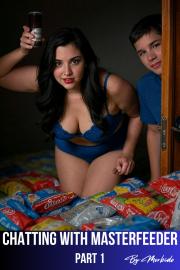

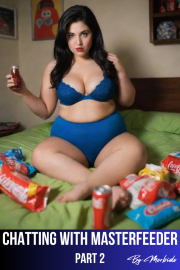
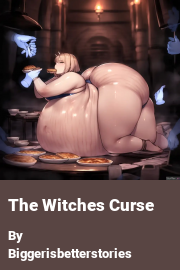


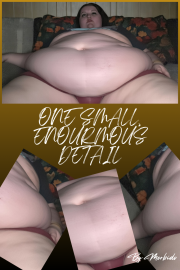
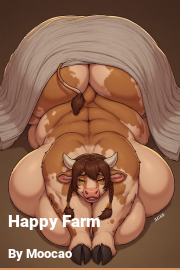

Comments